Google TV vs LG TV is one of the mostly-discussed topics among the streaming businesses. In the rapidly evolving streaming sector, the intersection of technology and television has birthed a dynamic ecosystem, empowering viewers to engage with content in unprecedented ways.
As streaming businesses set their sights on conquering the smart TV market, two prominent contenders, Google TV and LG TV, have emerged to redefine the viewing experience.
In this quest for supremacy, a nuanced understanding of the distinctions between these platforms becomes not just an advantage, but a necessity. As the battle for dominance intensifies, streaming businesses seeking to launch their smart TV apps find themselves at a crucial crossroads, where informed decisions can chart the course for success in an industry poised for groundbreaking transformation.
This exploration delves into the essentials of Google TV and LG TV, offering invaluable insights for those eager to harness the potential of the booming smart TV domain. So let’s start from the basics and delve deeper to provide you with all the information on Google TV vs LG TV that you have been looking for.
What Is Google TV?
Google TV stands as a sophisticated smart television platform meticulously crafted by Google. This innovative system seamlessly merges streaming services, live TV, and on-demand content within a singular interface, delivering users an unmatched and tailored journey through entertainment.
Tailored for integration with smart TVs and set-top boxes, Google TV serves as the gateway to an expansive array of content originating from diverse sources. This encompassing content spectrum spans beloved streaming platforms, applications, and even conventional broadcast channels, all accessible through this pioneering platform.
At its core, Google TV acts as a content hub, allowing users to access and explore a diverse range of shows, movies, live broadcasts, and apps through a single, user-friendly interface.
What Is LG TV?
The LG TV OS, developed by LG Electronics, represents a sophisticated operating system tailored specifically for LG’s range of television products. This OS integration redefines the television experience, seamlessly combining cutting-edge hardware with intuitive software to offer users an immersive and interactive entertainment solution.
At its core, the LG TV serves as the digital backbone of LG televisions, enabling users to navigate and access a wide array of features and content with ease. It is designed to provide a user-friendly interface that enhances accessibility and simplifies the overall viewing experience.
One of the standout features of the LG TV app/OS is its integration of smart TV capabilities. Users can seamlessly connect to the internet, access streaming platforms, and utilize various applications directly from their LG TVs.
This integration opens up a world of entertainment possibilities, allowing users to enjoy their favorite movies, TV shows, and online content without the need for additional devices.
Google TV: Overview, History, Potential
Google TV stands as a transformative streaming platform that seamlessly blends traditional television content with the vast realm of online streaming services. Developed by the tech giant Google, this platform redefines how audiences engage with entertainment, creating an integrated ecosystem that caters to both conventional TV enthusiasts and modern-day cord-cutters.
The roots of Google TV can be traced back to 2010 when the concept was first introduced. The initial iteration, however, faced challenges due to usability issues and the complexity of its interface.
This prompted Google to reevaluate its approach and re-emerge with a refined version. In 2020, Google unveiled the reimagined Google TV, serving as a significant leap forward in terms of user experience and integration.
The potential of Google TV extends beyond its current offerings, hinting at a future where entertainment, interactivity, and convenience converge in innovative ways. One notable area of potential lies in the continued development of AI-powered recommendations. As Google refines its algorithms, users can expect even more accurate and personalized content suggestions, further enhancing engagement and retention.
Moreover, Google TV’s integration with smart home technology opens doors to new possibilities. The ability to control lights, thermostats, and other smart devices directly from the TV remote or voice commands provides a glimpse into a seamlessly connected lifestyle. This integration aligns with the growing trend of smart homes and positions Google TV as a hub for centralizing control.
As the platform continues to evolve, Google TV’s potential impact on advertising and content delivery should not be overlooked. With its extensive user data, Google can refine targeted advertising strategies, delivering relevant ads to viewers. Additionally, content creators and distributors can leverage Google TV’s user-friendly interface to promote their offerings, potentially altering how content is marketed and consumed.
If you’re preparing for Google certifications, utilizing Google Certification Dumps can provide additional insights into these features and technological advancements.
LG TV (WebOS): Overview, History, Potential
LG’s WebOS, initially crafted for their smart TVs, has transcended its original purpose to become a versatile OS environment with multifaceted applications. As a web-centric platform, its adaptability spans various solutions, extending its utility beyond television screens.
Beyond its TV applications, WebOS has demonstrated its prowess in networking with diverse LG devices, enabling seamless content streaming across a spectrum of LG products. This dynamic evolution has led to the incorporation of WebOS into a plethora of devices, showcasing its versatility and potential.
The timeline spanning from 2009 to 2023 witnessed an impressive diversification of devices leveraging the capabilities of WebOS. Originating from smartphones and progressively encompassing an array of products including smart TVs and even innovative appliances like smart refrigerators, WebOS’s journey mirrors its expanding horizons and adaptability to distinct tech landscapes.
A succinct summary of this journey can be found in the encapsulating table provided below:
Date | Launch |
January 2009 | Palm WebOS Launched |
April 2010 | Palm was acquired by HP |
February 2011 | HP starts developing WebOS as a universal operating system |
July 2011 | HP WebOS 3.0 Release |
January 2012 | The last version of HP WebOS, version 3.0.5 got released |
December 2011 – February 2012 | Open WebOS Released |
2013-2014 | WebOS became LG WebOS |
March 2018 | The open-sourced edition of LG WebOS got released |
Google TV Vs LG TV: A Comparative Analysis
1. Google TV Vs LG TV: Platform Focus
Google TV’s platform focus revolves around creating a seamless and unified content experience for users. It aims to bridge the gap between traditional television and modern streaming services by integrating both within a single interface.
This approach eliminates the need for toggling between different inputs or devices, simplifying the entertainment journey. The personalized recommendation system enhances this focus, tailoring content suggestions based on user preferences, ensuring that viewers discover new shows and movies effortlessly. The integration of voice search technology further streamlines content discovery, making Google TV a comprehensive platform for accessing and enjoying a wide range of content.
In contrast, LG TV’s platform focus centers on two key areas: display innovation and user interaction. The webOS operating system offers an intuitive and user-friendly interface, simplifying navigation through apps, settings, and content. Features like Magic Remote add an element of convenience by enabling motion control, making user interaction smooth and engaging.
2. Google TV VS LG TV: Apps & Ecosystem
In the realm of smart television, the clash between Google TV and LG TV is as much about the content they offer as it is about the technology they employ. Both platforms vie for dominance in the living rooms of countless households, each boasting its own unique approach to apps and ecosystem development.
Google TV, powered by the ever-pervasive Google, seamlessly integrates its Android operating system into the television experience. One of its standout features lies in the extensive array of apps available on the Google Play Store.
From streaming giants like Netflix and Hulu to niche apps catering to specific interests, the store’s vastness caters to a diverse audience. Categorized meticulously, the apps cover a broad spectrum, including entertainment, education, lifestyle, and more. This diversity enriches the content options available to users, making Google TV a versatile platform.
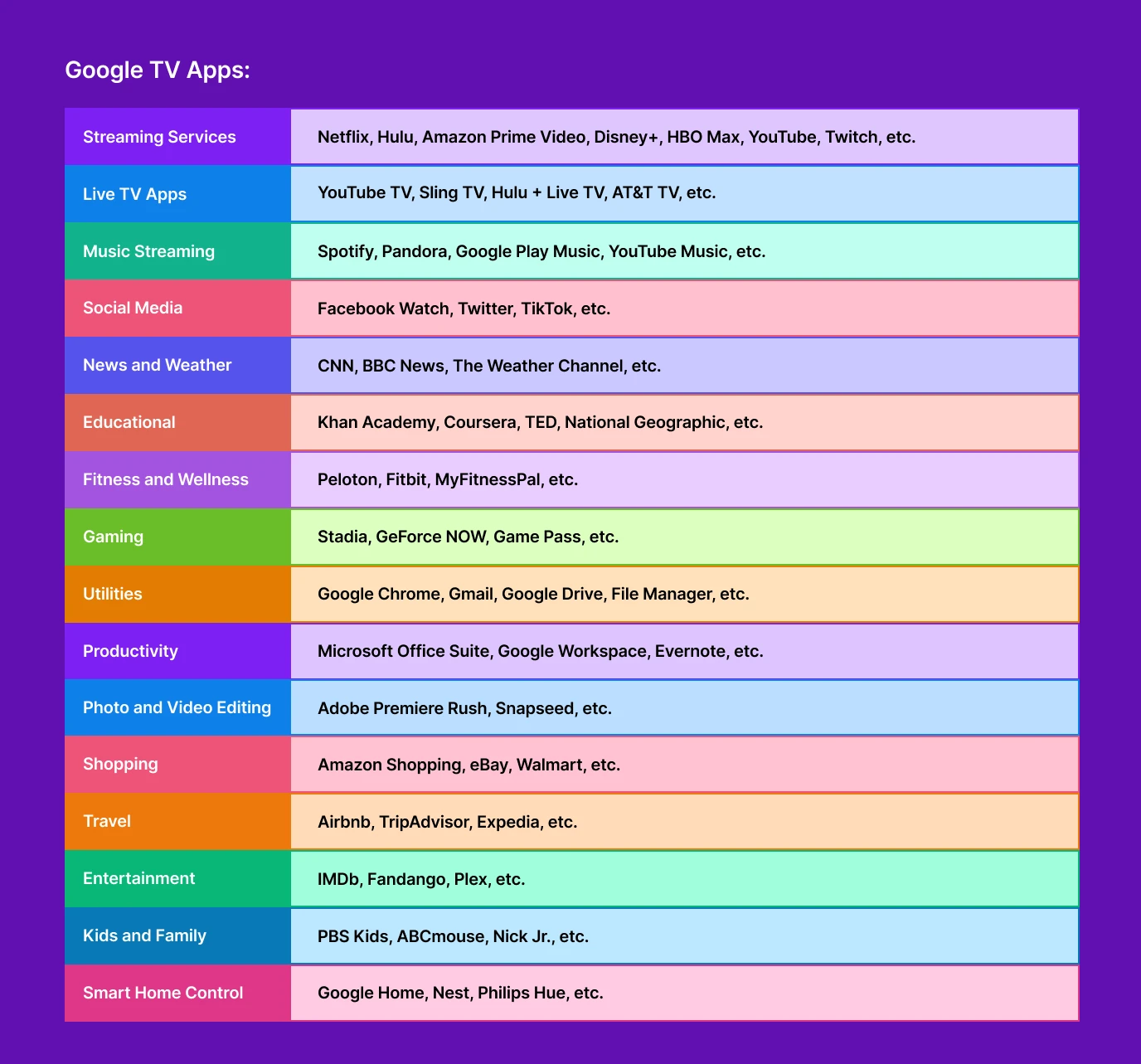
On the other hand, LG TV takes a different route by curating its webOS ecosystem. LG focuses on optimizing user experience by ensuring that the most popular streaming services are pre-installed and easily accessible. While the app selection might be more streamlined compared to Google TV’s extensive store, LG’s emphasis on quality over quantity often leads to a smoother and more user-friendly interface.
This approach resonates particularly well with users who prefer a simplified experience without the hassle of extensive app searches.
The user base for both platforms is significant, owing to their respective parent companies’ clout. Google TV benefits from the ubiquity of Google’s services, ensuring a large user pool right from the start.
LG TV, on the other hand, offers a more controlled ecosystem with a focus on stability and usability. By prioritizing partnerships with major streaming services and ensuring a smooth integration of those apps, LG creates an environment where users can access their favorite content without friction. This curated approach leads to a cohesive ecosystem that caters to users seeking reliability and a hassle-free viewing experience.
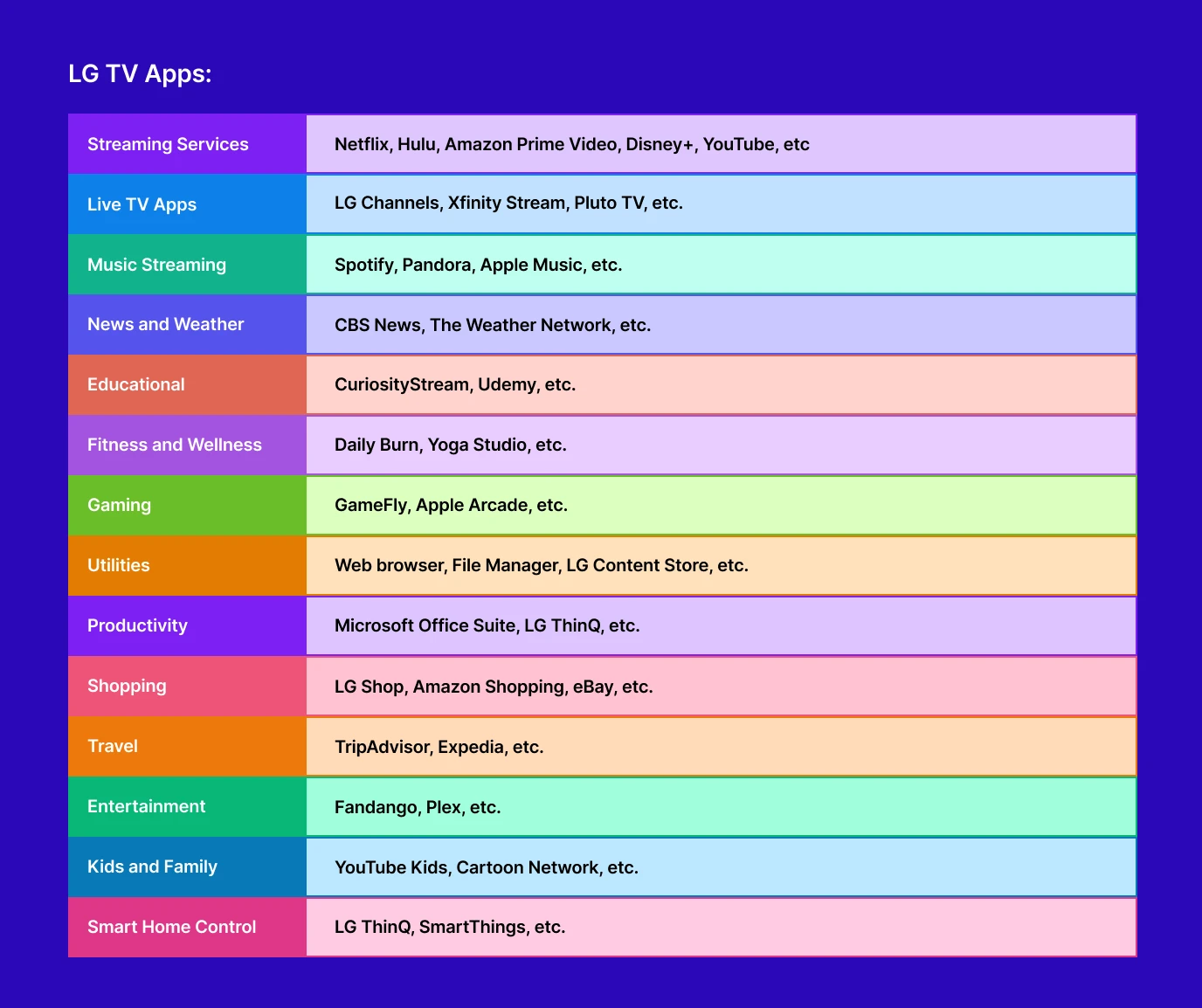
3. Google TV Vs LG TV: User Interface
Google TV, drawing from its Android roots, presents users with a polished and dynamic UI. A hallmark of Google TV’s interface is its personalized homepage, which seamlessly integrates content from various sources.
Through an intelligent algorithm, the platform curates suggestions based on a user’s viewing habits, making content discovery a delightful journey. The “Watchlist” feature allows users to bookmark shows and movies, creating a customized content queue.
Furthermore, the Google Assistant integration transforms the UI into a voice-command hub, enabling users to search for content, open apps, and control playback using natural language. The user interface feels interconnected, bringing together a range of apps and services under a cohesive, user-friendly design.
Conversely, LG TV employs its webOS platform, characterized by its simplicity and ease of use. The UI is designed with intuitive navigation in mind, presenting users with a dashboard that offers quick access to apps and settings.
LG’s Magic Remote enhances the experience by enabling gesture and voice controls, providing an alternative to traditional button-based navigation. One of the standout features of the LG TV UI is the “Magic Link” feature, which provides contextual information about what’s on the screen, such as cast details and related content.
This seamless overlay enhances the user’s connection to the content without disrupting the viewing experience. The minimalist design of LG’s UI creates an uncluttered environment that appeals to users who prioritize straightforward access to their favorite content.
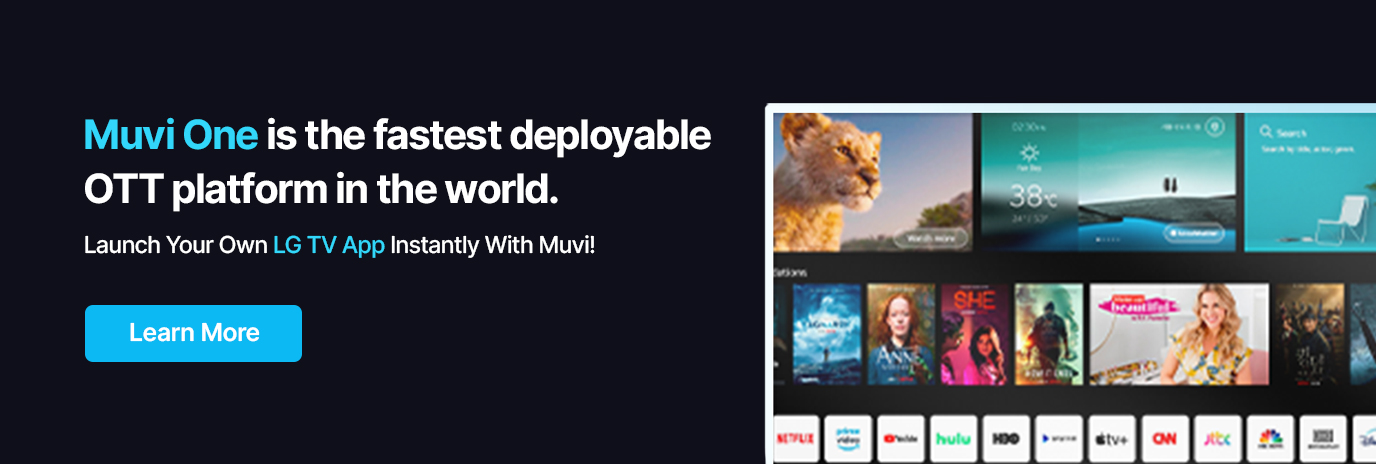
4. Google TV Vs LG TV: Voice Assistance
Google TV, driven by Google’s expertise in voice recognition and natural language processing, offers users a robust and versatile voice assistance experience. The integration of Google Assistant into the platform empowers users to control their TV using voice commands.
From searching for specific shows, movies, or genres to adjusting settings like volume and brightness, Google TV’s voice capabilities are expansive. Users can also delve beyond basic commands by asking contextual questions or seeking recommendations based on their preferences. This deep integration with Google’s ecosystem means that users can extend voice control to connected smart devices, turning their TV into a central hub for home automation.
In the other corner, LG TV’s voice assistance, also powered by artificial intelligence, focuses on simplicity and practicality. The ThinQ AI platform enables users to control their TVs using voice commands, ranging from basic functions like changing channels and adjusting the volume to more advanced actions like searching for content across multiple apps.
Additionally, LG’s Magic Remote complements the voice capabilities by allowing users to navigate through menus and make selections using natural language. The AI-driven voice recognition aims to understand users’ intentions accurately and execute commands promptly.
5. Google TV Vs LG TV: Integration
Google TV, bolstered by Google’s extensive ecosystem, emphasizes a comprehensive integration strategy. The platform seamlessly integrates with Android devices, enabling users to cast content from their smartphones and tablets to the TV screen effortlessly. This integration extends beyond personal devices, as Google TV also supports integration with smart home devices that are compatible with Google Assistant.
The “Chromecast with Google TV” device, for instance, acts as a bridge between the TV and other smart devices, enabling control through a unified interface. This interconnectedness enhances user convenience by enabling centralized control of various aspects of the digital environment.
In contrast, LG TV pursues integration through its ThinQ AI platform. By incorporating AI technology, LG TV offers compatibility with a range of smart home devices, allowing users to control lights, thermostats, and more through the TV.
The platform’s compatibility with voice assistants like Amazon Alexa and Google Assistant further expands its integration potential, catering to users who prefer to control their smart home devices using the voice assistant of their choice.
6. Google TV Vs LG TV: Learning Curve
Google TV, leveraging its Android heritage, offers a user-friendly interface that is relatively intuitive for those familiar with Android devices. Users accustomed to Android smartphones or tablets will find a sense of familiarity in the navigation, app management, and settings of Google TV.
The integration of Google services further simplifies the learning curve, as users can seamlessly log in with their Google accounts and access their existing preferences and content. Additionally, Google TV’s voice control capabilities, powered by Google Assistant, provide an accessible way to navigate and interact with the TV, making it easier for users of all skill levels to adapt.
On the other hand, LG TV’s webOS platform focuses on minimizing the learning curve through a straightforward and visually appealing interface. The user-friendly design prioritizes ease of use, presenting users with a dashboard that offers quick access to apps, settings, and inputs.
The inclusion of tooltips and user guides further aids users in discovering the platform’s features, making it particularly suitable for those who might be less tech-savvy.
Google TV Vs LG TV: In a Glance
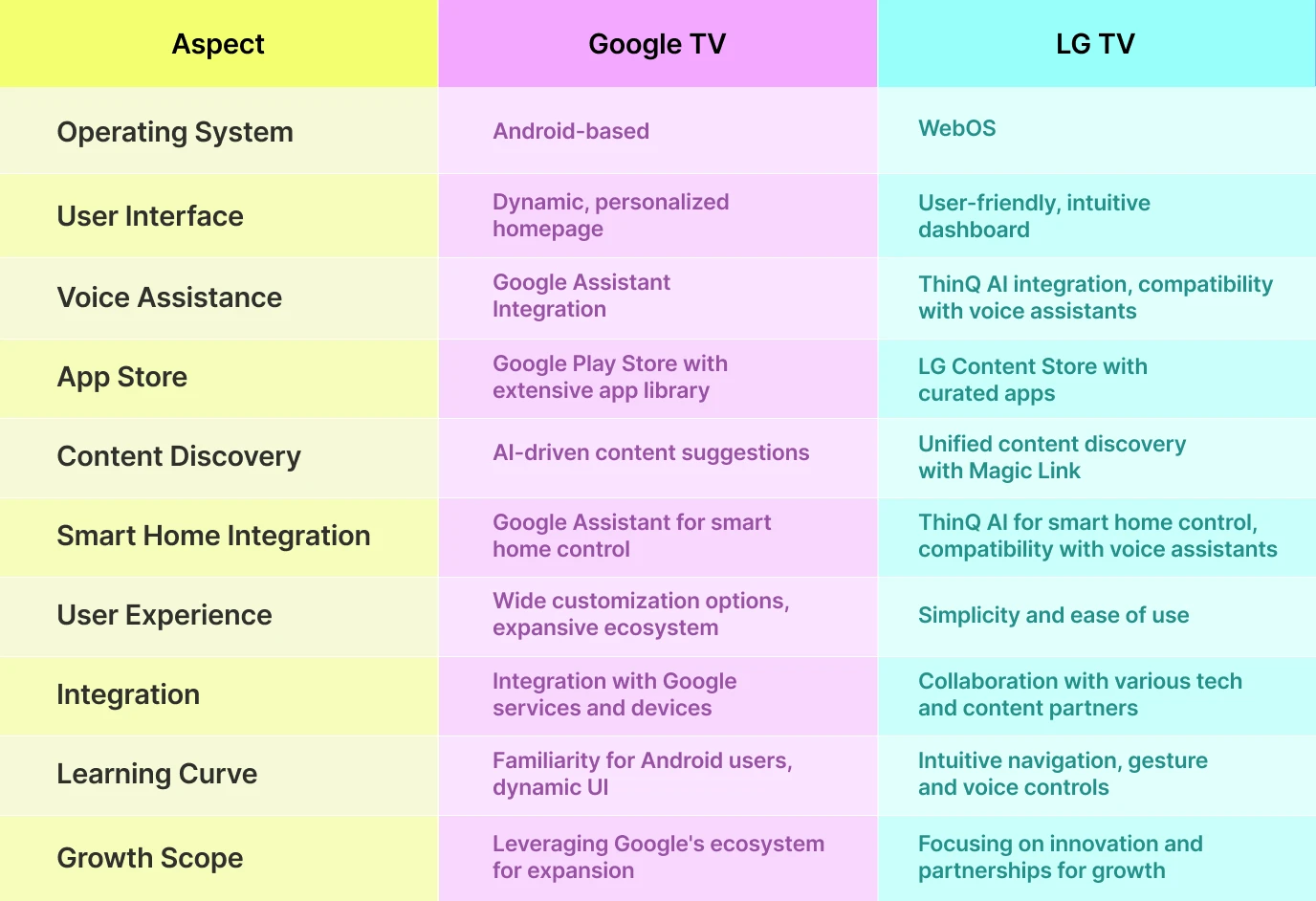
Google TV Vs LG TV: Market, and Growth Scope
Google TV, backed by the tech giant’s expansive ecosystem, enters the market with a significant advantage. Google’s brand recognition, coupled with Android’s popularity, positions Google TV to capture a substantial market share. Its integration with the Google Play Store offers a plethora of streaming apps, making it a one-stop destination for various content preferences.
According to a recent market report, the worldwide smart TV market is projected to exhibit a remarkable compound annual growth rate (CAGR) surpassing 21% between 2021 and 2025. In sync with this promising expansion, Google TV is poised to secure a more substantial segment of this burgeoning market.
This anticipated success can be attributed to its inventive methodology in content exploration and the provision of tailored suggestions, setting it apart as a frontrunner in the industry.
LG TV’s webOS comes with its own set of advantages in the streaming business. Its user-friendly interface appeals to users seeking simplicity, which can be particularly attractive to older demographics or those less tech-savvy. This usability factor enhances user engagement, leading to increased streaming hours and content consumption.
The LG TV app store not only boasts a sprawling ecosystem encompassing diverse audiences, but it also holds considerable untapped potential. The LG smart TV app market has witnessed remarkable expansion in recent years, with a staggering year-over-year growth rate of nearly 36% as highlighted in a 2022 report.
In accordance with a recent market analysis, the global smart TV market’s valuation reached an impressive $197.82 billion in 2022, and its trajectory is set to ascend to an estimated $451.26 billion by 2030.
This growth trajectory, with a projected compound annual growth rate (CAGR) of 10.9% during the forecast period, is significantly influenced by the LG smart TV and webOS ecosystem’s substantial contributions.
To Conclude
In the spirited competition between Google TV and LG TV, the ultimate choice boils down to user preferences and priorities. The lucrativeness of Google TV vs. LG TV in the streaming business depends on factors like user engagement, advertising potential, and partnerships.
Google TV’s personalized content discovery can lead to better ad targeting and higher user interaction, potentially generating substantial ad revenue. Moreover, Google’s extensive data analytics capabilities can empower content providers to refine their offerings based on user behavior.
On the other hand, LG TV’s webOS emerges as an embodiment of user-friendliness and simplicity. Its intuitive dashboard and user interface offer a straightforward navigation experience that resonates particularly well with those valuing ease of use.
The bottom line in this comparison is driven by individual priorities. For tech-savvy users seeking a versatile ecosystem with deep integration potential, Google TV is a compelling choice. Meanwhile, users inclined toward simplicity and seamless interaction, especially within a smart home context, may find LG TV’s webOS more attuned to their preferences.
Both platforms reflect the ever-evolving nature of the smart TV landscape, offering unique approaches to redefine streaming businesses in 2023 and beyond.
Launch your own Smart TV Apps with Muvi One
Muvi One empowers you to effortlessly launch your very own branded smart TV app, all without the need to write a single line of code. What’s more, Muvi One boasts compatibility with 16+ diverse environments, encompassing Android TV, Fire TV, Apple TV, Roku TV, and more.
Furthermore, it offers a range of competitive features like –
- Robust DRM
- 4K streaming
- In-depth analytics & insights
- Kids mode
- Autoplay next
and many more.
Sign up for a 14-day trial today – no credit card information needed – and unveil your distinctive smart TV app to the world.

FAQs
- What are the benefits of Google TV?
Benefits of Google TV include a user-friendly interface, access to a vast library of apps, voice control, and personalized content recommendations for a tailored viewing experience.
- What are the benefits of LG TV?
LG TV (OS) benefits include LG’s proprietary webOS, known for its smooth and intuitive user interface, quick app switching, and support for LG’s ThinQ AI for smart home integration.
- What are the differences between Google TV and LG TV?
Google TV and LG TV differ in their operating systems. Google TV is a platform developed by Google, while LG TV (OS) refers to LG’s own webOS. Each offers unique features and user experiences.
Google TV operates by aggregating content from various streaming services, live TV, and apps into a single interface. It uses Google’s search and recommendation algorithms to enhance content discovery.
LG TV (OS) works through webOS, offering a user-friendly interface that allows easy navigation, quick app access, and integration with LG’s ThinQ AI for voice control and smart home connectivity.
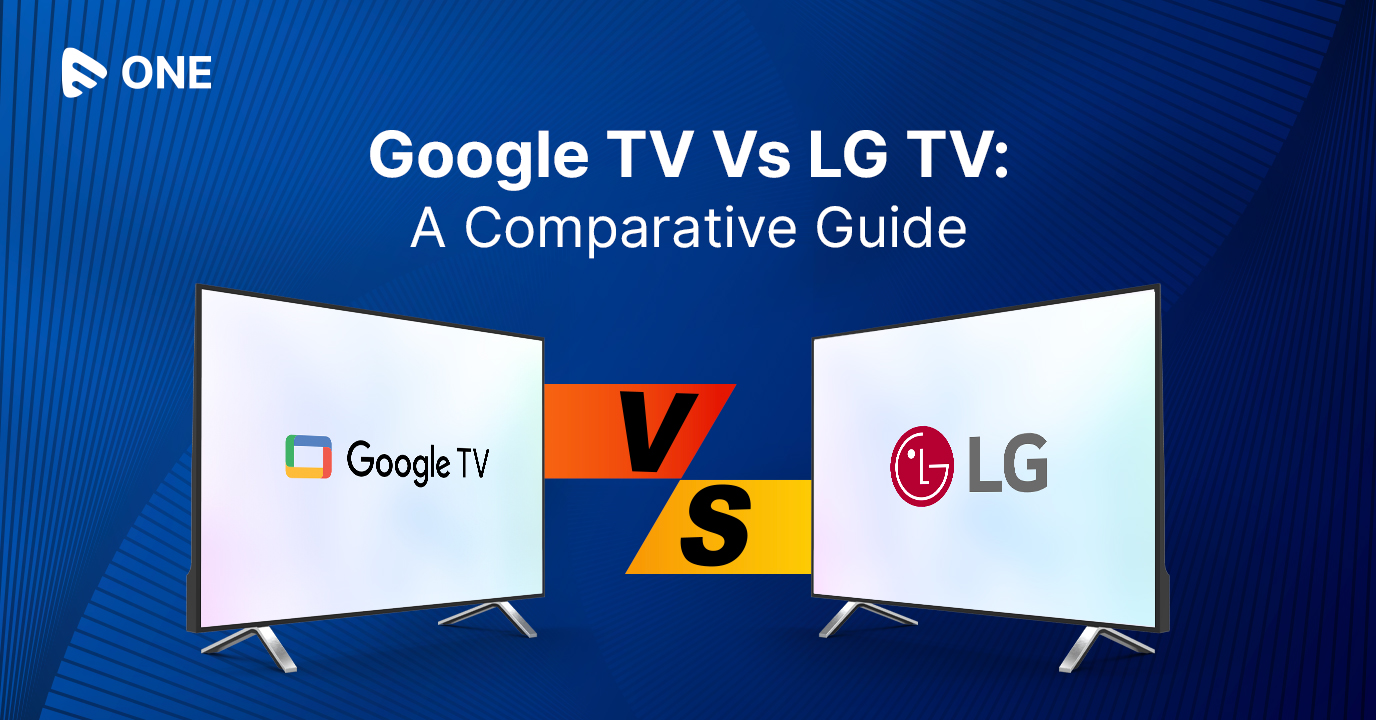






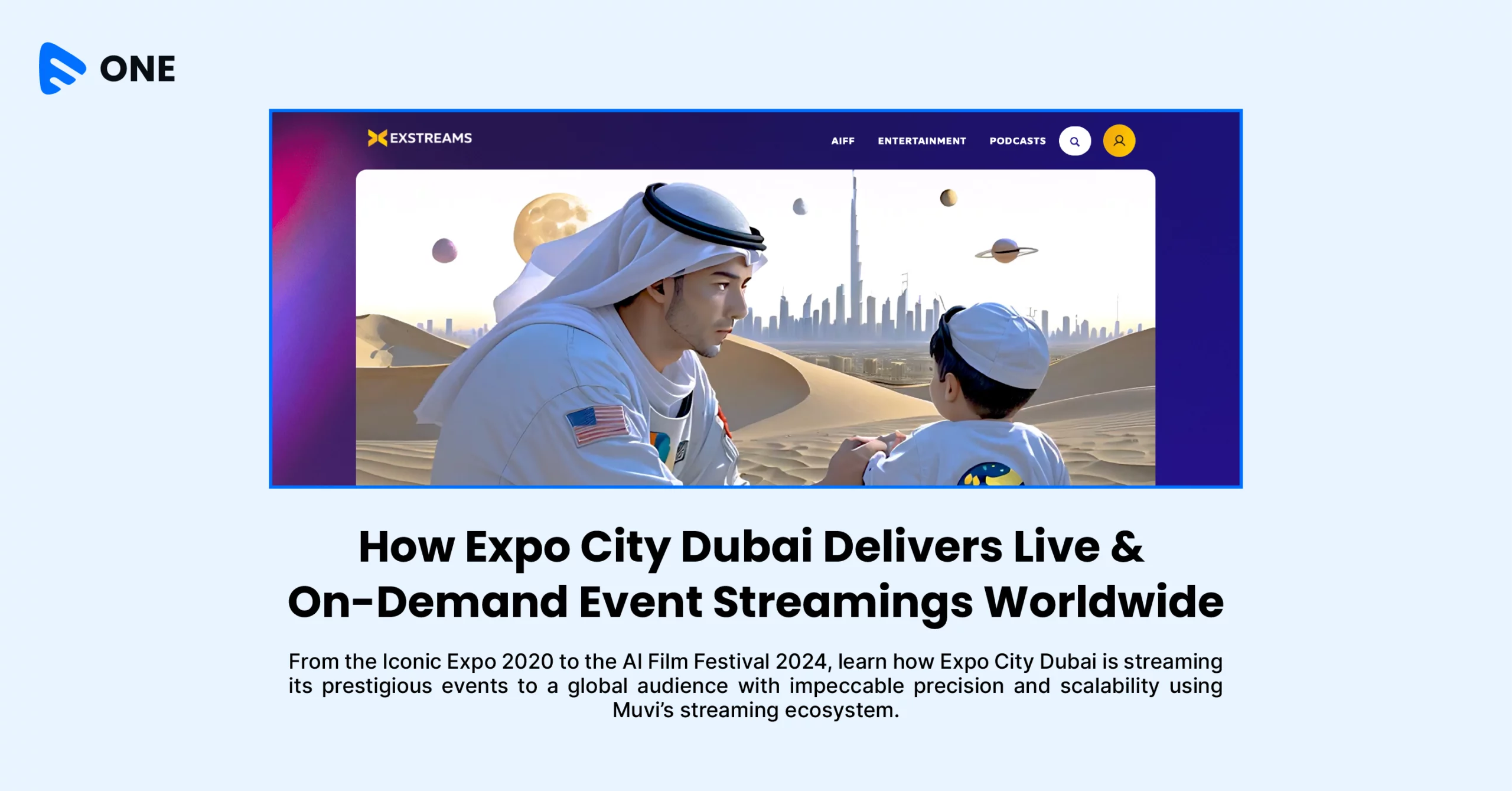
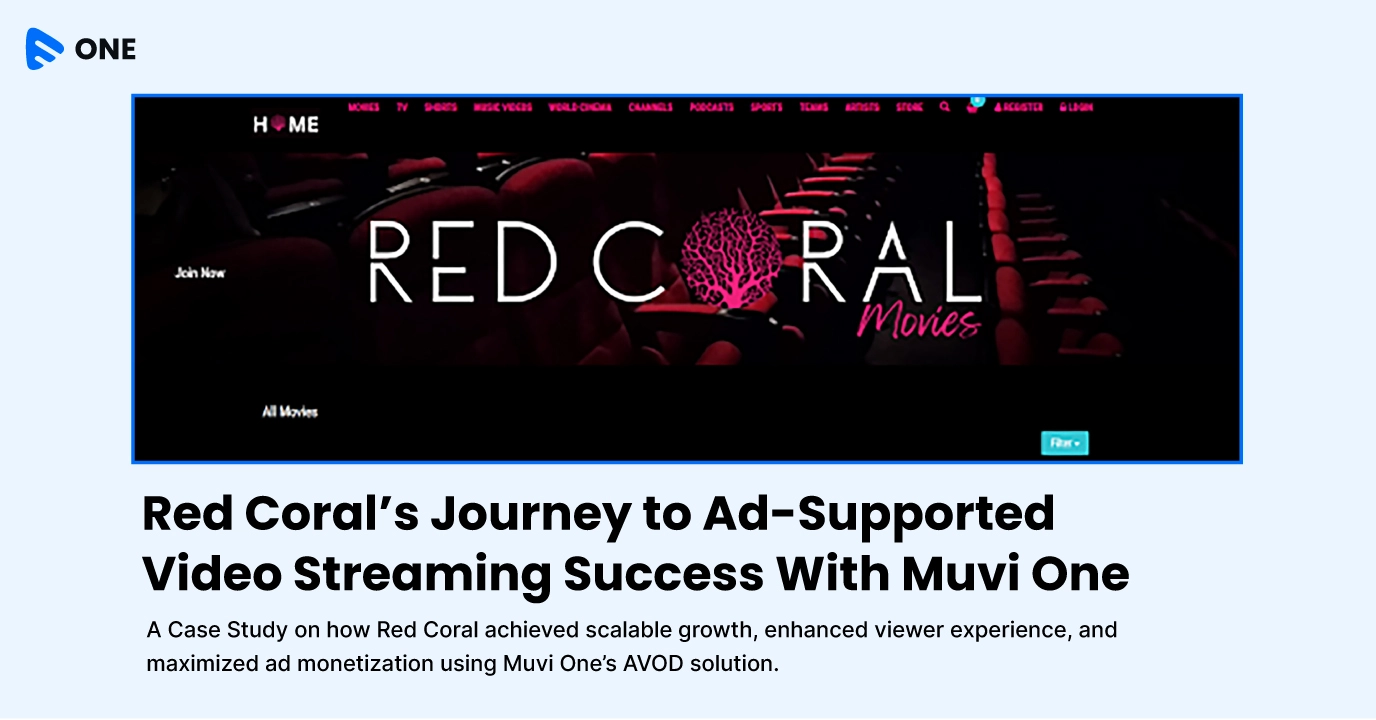
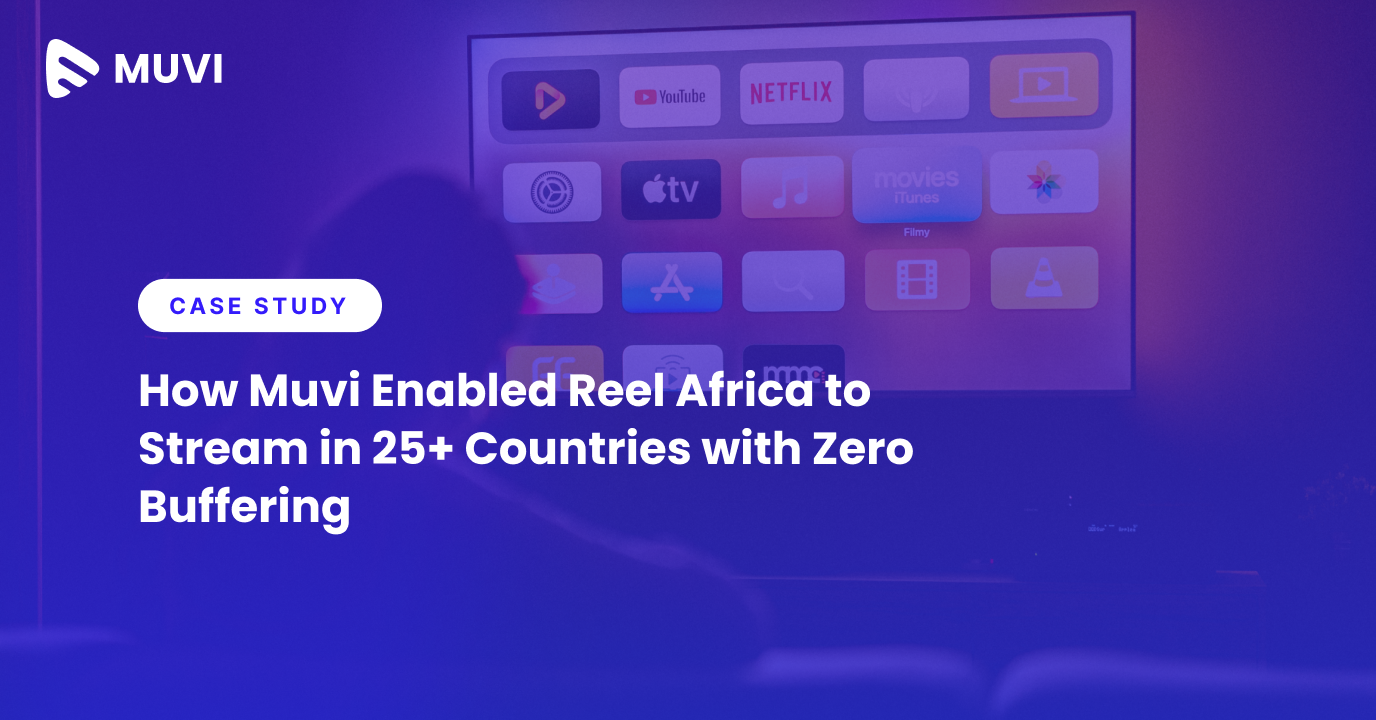




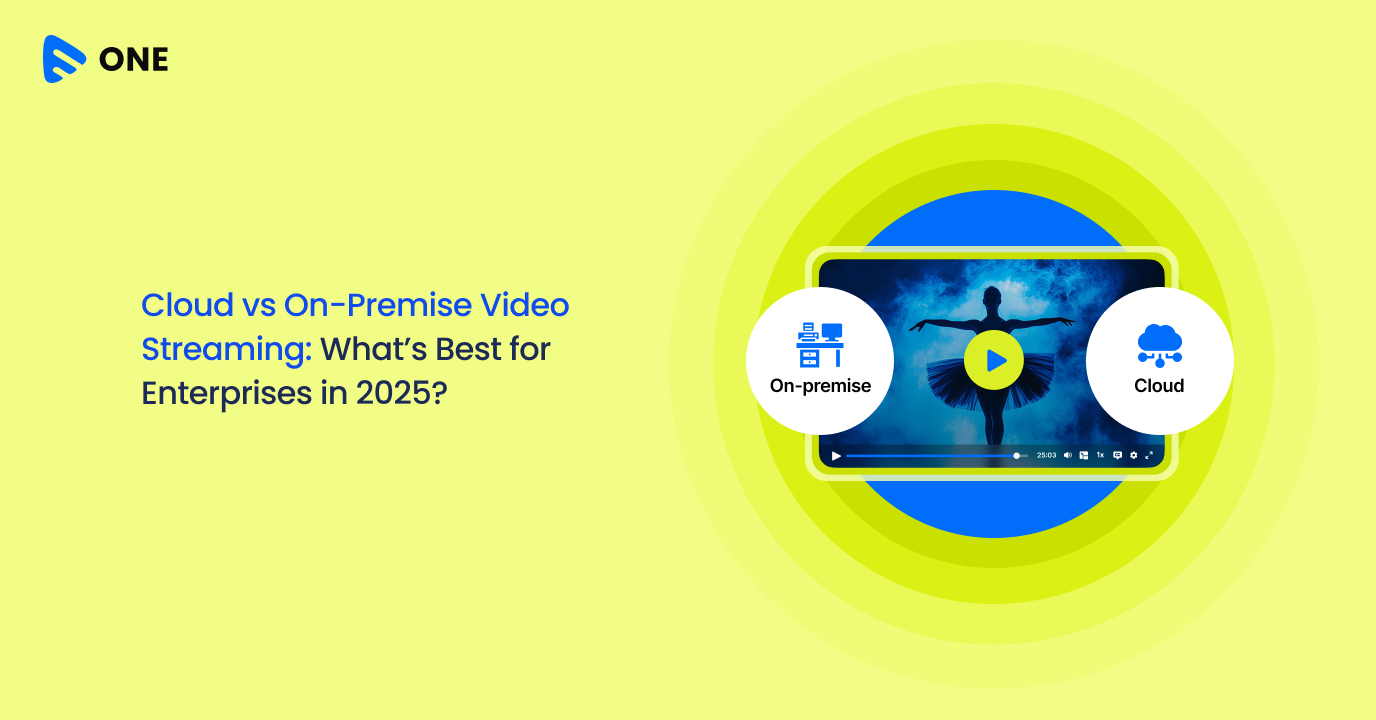





Add your comment